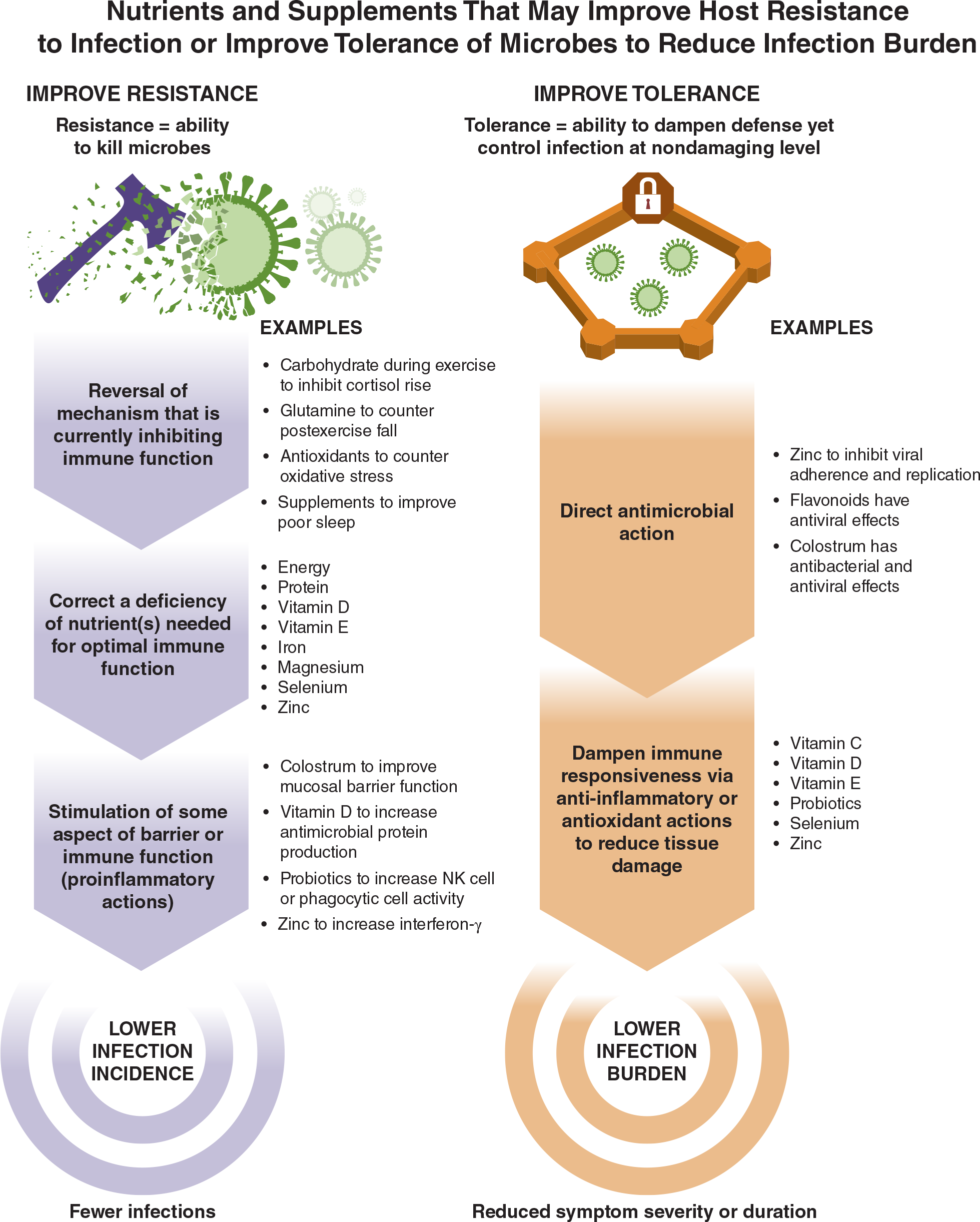Nutritional Manipulation to Decrease Immunodepression in Athletes
This is an excerpt from Sport Nutrition 4th Edition With HKPropel Access by Asker Jeukendrup,Michael Gleeson.
Poor nutritional practices may contribute to impaired immunity in athletes. Some athletes adopt diets that are extremely high in carbohydrate content at the expense of protein and fat. By avoiding foods that are high in animal fat, athletes are reducing their intake of fat-soluble vitamins and essential FAs. Many sports have strict weight categories that lead some competitors to follow energy-restricted diets that are often unbalanced and place them at risk of nutrient deficiencies.
Low energy availability (see chapter 16) has been identified as a risk factor for infection in some elite athletes (Drew et al. 2018). The most vulnerable groups are athletes for whom maintaining a low body weight and percentage body fat is important for aesthetics (e.g., gymnastics, dance, artistic swimming) or athletic performance (e.g., jumpers, distance runners). Approximately 50% of elite female athletes in two studies conducted in the months preceding the 2016 Summer Olympic Games were classified as having low energy availability. This was associated with a four- to eightfold higher risk of URTI (Drew et al. 2017, 2018), emphasizing the important association between nutrition and athlete immune health. Although these studies show association rather than causation, it seems likely that either low energy availability per se or deficiencies of protein or essential micronutrients can impair immunity and increase susceptibility to infection in athletes (Walsh 2018; Calder 2021).
Anecdotal and media reports promote the supposed performance benefits of certain vitamins and minerals (or certain food items like herbals such as echinacea and St. John’s wort or spices such as curcumin), but most athletes do not realize that micronutrient supplementation is only beneficial when it corrects a deficiency or improves immune tolerance. Excessive intake of some micronutrients can be toxic or can limit the absorption of other essential trace elements. Deficiencies or excesses of various dietary components have a substantial effect on immune function and may exacerbate the immunodepression associated with heavy training loads.

SHOP

Get the latest insights with regular newsletters, plus periodic product information and special insider offers.
JOIN NOW
Latest Posts
- How do I integrate nutrition education into PE?
- How does the support of friends and family influence physical activity?
- What makes the Physical Best approach unique?
- Strength training gimmicks . . . or not?
- How do vitamins and minerals support our bodies?
- Why do many people have difficulty losing weight?


